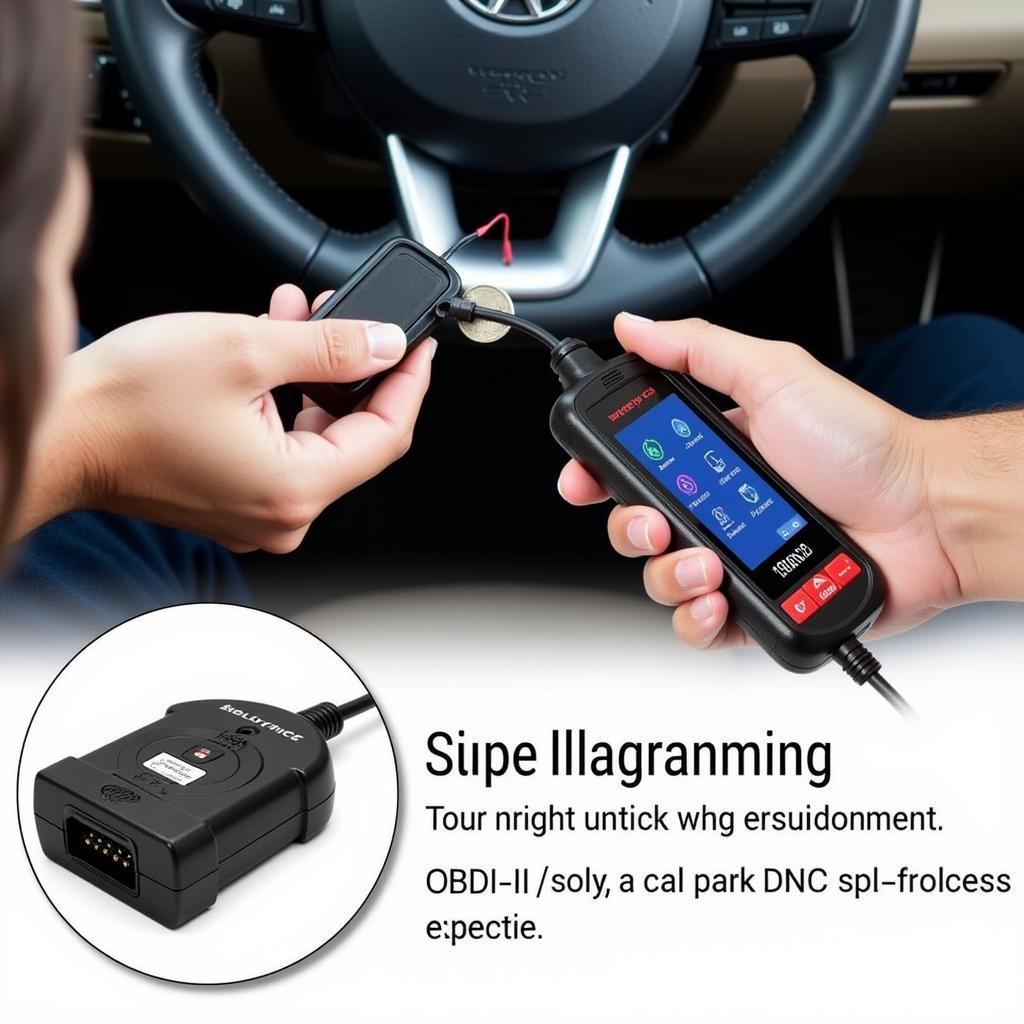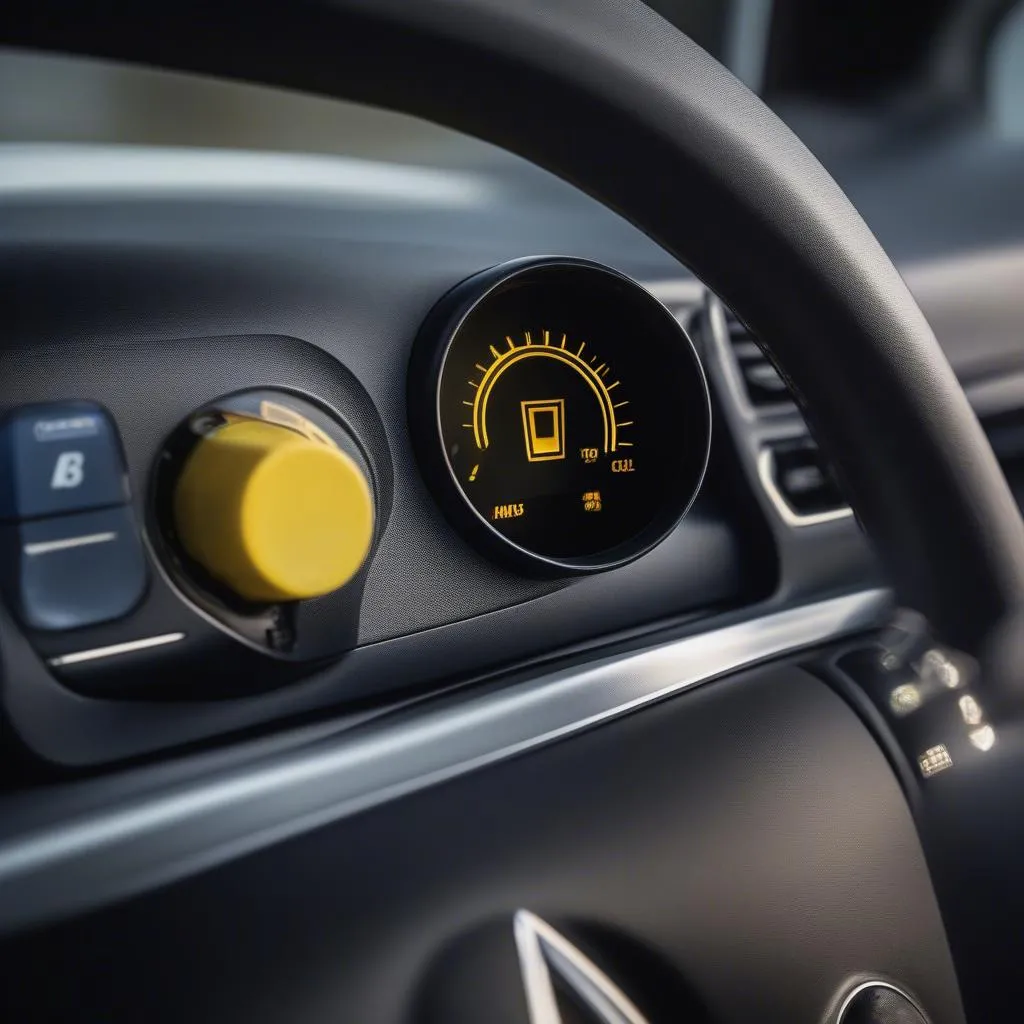The 2002 Toyota Prius is a marvel of hybrid technology, but even these fuel-efficient vehicles can encounter issues. One common problem is the dreaded “parking brake warning,” a signal that something might be amiss with your braking system. This article delves into the common causes behind the 2002 Toyota Prius parking brake warning and provides comprehensive solutions to get you back on the road safely.
Understanding Your Prius’s Braking System
Before diving into troubleshooting, it’s helpful to understand the basics of your 2002 Toyota Prius’s braking system. This model utilizes a unique electro-hydraulic system that combines traditional hydraulic brakes with regenerative braking. The parking brake, however, is entirely mechanical and operates on the rear wheels via cables and a lever.
Common Causes of the Parking Brake Warning
A persistent parking brake warning light on your 2002 Toyota Prius dashboard typically indicates one of the following:
- Engaged Parking Brake: The most obvious and easily remedied cause is an engaged parking brake lever. Ensure the lever is fully released.
- Faulty Brake Fluid Level Sensor: The Prius monitors brake fluid levels. A faulty sensor might send a false warning signal.
- Low Brake Fluid: Low brake fluid is a serious issue that can trigger the warning light. Inspect the brake fluid reservoir and refill if necessary.
- Worn Brake Pads: While less likely to cause a parking brake warning specifically, severely worn brake pads can sometimes trigger warning lights in the braking system.
- Electrical Issues: Issues like a blown fuse, corroded wiring, or a malfunctioning brake light switch can disrupt the signal and lead to a false warning.
Troubleshooting the Parking Brake Warning
If the parking brake lever is released and the warning persists, follow these steps:
- Check Brake Fluid: Locate the brake fluid reservoir under the hood. Ensure the fluid level is between the “MIN” and “MAX” lines. If low, add the appropriate DOT 3 brake fluid.
- Inspect Parking Brake Switch: The switch, usually located near the parking brake lever, might be faulty. Inspect it for any visible damage or loose connections.
- Examine Brake Light Switch: A malfunctioning brake light switch can also cause issues. This switch is located above the brake pedal and can be tested for continuity with a multimeter.
- Check Fuses: Consult your owner’s manual for the location of the parking brake and brake light fuses. Inspect them visually for any signs of damage or a blown fuse.
When to Seek Professional Help
While some issues can be resolved with basic troubleshooting, others require the expertise of a qualified mechanic. If you encounter the following:
- Persistent Warning After Troubleshooting: If the warning persists despite checking fluid levels, switches, and fuses, further diagnosis is necessary.
- Visible Brake Fluid Leak: A leak indicates a potential problem with brake lines, calipers, or the master cylinder.
- Spongy or Soft Brake Pedal: This can be a sign of air in the brake lines, requiring bleeding the system.
2002 toyota prius parking brake warning on display
Preventative Measures
Regular maintenance can help prevent future parking brake warnings:
- Routine Brake Inspections: Have your brakes checked by a mechanic at least once a year or as recommended in your owner’s manual.
- Timely Brake Fluid Changes: Toyota recommends changing the brake fluid every 2 years or 25,000 miles.
- Address Warning Lights Promptly: Ignoring any warning light can exacerbate issues and lead to costly repairs.
Conclusion
A persistent parking brake warning in your 2002 Toyota Prius should not be ignored. By understanding the potential causes and following the troubleshooting steps outlined in this article, you can address the issue effectively. Remember, prioritizing regular maintenance and prompt attention to warning signs is crucial for ensuring your safety and prolonging the life of your vehicle.


